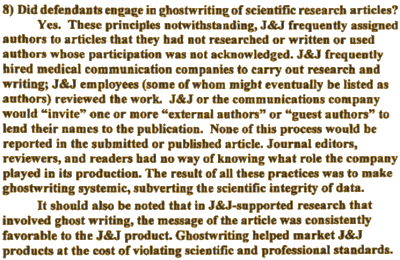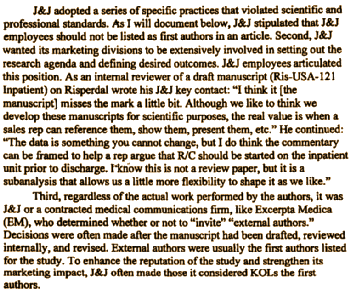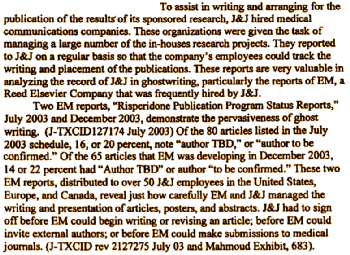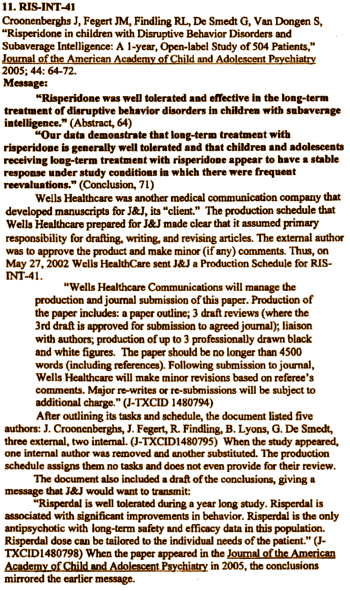As many times as I’ve read about ghost-writing, I still find it jarring. This is the format of the Rothman Report, the questions Dr. Rothman was asked with his answer followed by the examples from the subpoenaed documents that lead him to his conclusions"
I could go on and on cutting out paragraphs, and they are there to read if you’re interested [Rothman Report]. The general piece is maybe five pages. It’s followed by thirteen examples of ghost-writing that goes on for thirty plus pages. I’ll pass on just one of Dr. Rothman’s examples:
One of Janssen’s main ghost-writing factories was conveniently located just around the corner, Excerpta Medica:
Starting on page 44 running through page 86, it’s one grand betrayal after another. Articles written by Janssen-paid professional writers, using clinical trials conducted by Janssen, reviewed by Janssen’s doctors, published using the names of then respected academic psychiatrists. And it was routine. Every article was a spinning top, a medical Pravda, filling our literature with what was essentially advertisments and propaganda, skillfully disguised as science.
So when Ms. Smith, the Janssen lawyer, says that "the case was not about what the world knew or thought of Risperdal, but about what A.B.’s doctor knew of the drug and whether he would have prescribed A.B.’s medication differently had he known", I would answer "How could he know? Where could he look to find out?" [some relief from those binds…]. Dr. Vernon Johnson had a covenant to pass on the best medical information available to Andrew Bentley and his mother. And Janssen had a covenant to pass on the truth about their medication to Dr. Vernon Johnson. Janssen not only broke the covenants, they did it on a large scale, in a way that couldn’t be detected, and they did it on purpose. It was a premeditated [1st degree] betrayal of both Doctor Johnson and the Bentleys. Ms. Smith’s hypothetical is an insult to them both, because they had no way to know.





Appalled by the corruption of science clearly evidenced by the Rothman report, I wondered “where are they now” re: academic child psychiatrists Peter Jensen see http://www.thereachinstitute.org/president-and-chief-executive-officer-peter-s-jensen-md.html and Robert Findling see http://f1000.com/thefaculty/member/1660338980134153 – disheartening to say the least. You’ll also find them in AACAP psychopharmacology screeds.
Our field has lost it’s way, and betrayed our young. Time to redress.